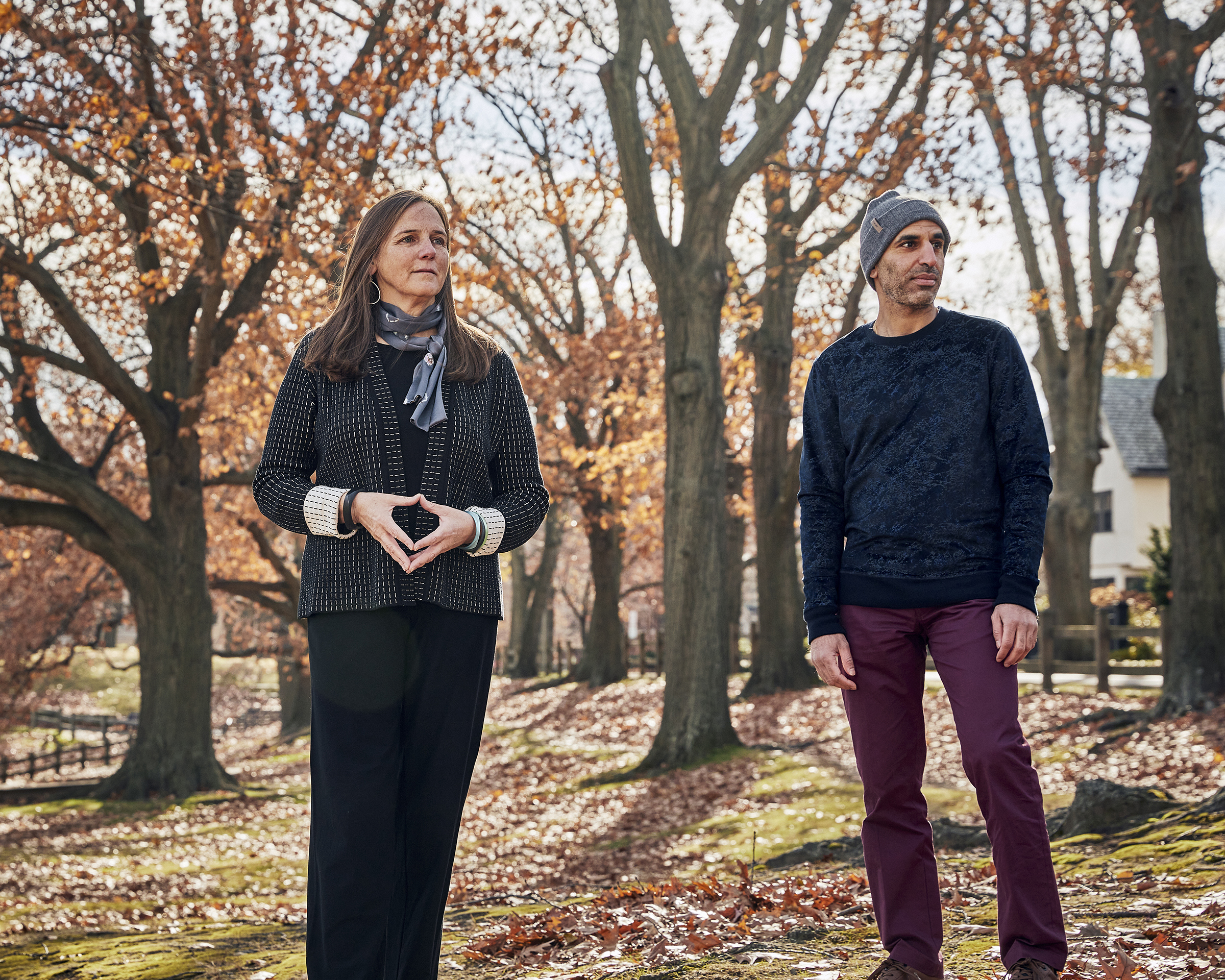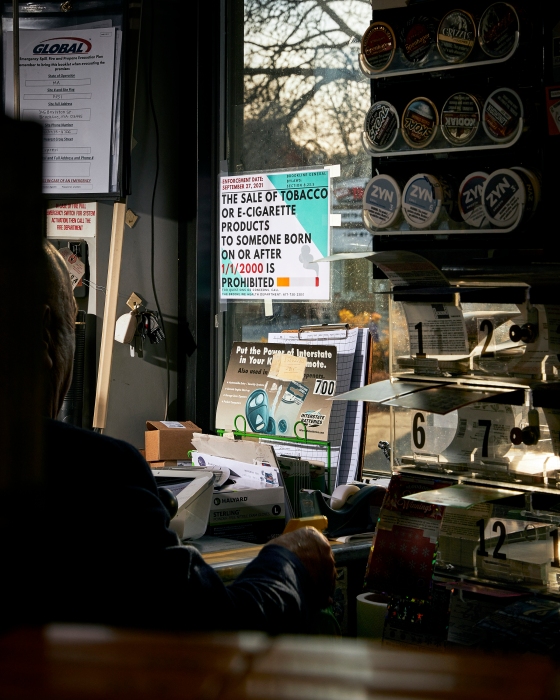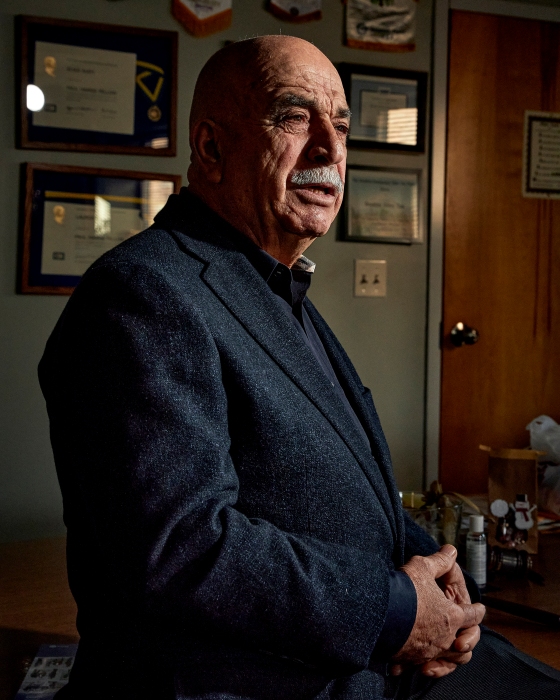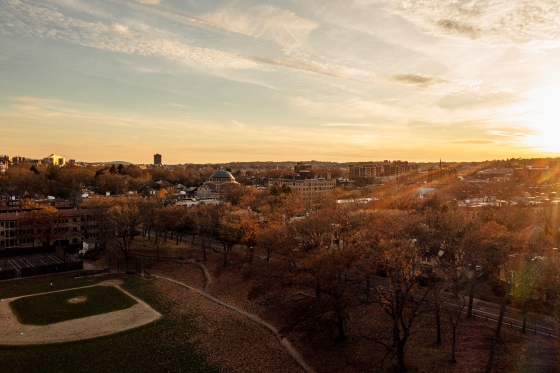
As Katharine Silbaugh sees it, one mark of a good public policy is being both big and small: big in its potential impact, small in its disruption to people’s lives. Silbaugh, a lawyer and one of the 240 elected “town meeting members” who make up local government in the picturesque Boston suburb of Brookline, thinks she’s managed to thread that needle with a recently passed ordinance unlike any other in the country.
The ordinance, co-sponsored by Silbaugh and pharmacist and fellow town meeting member Anthony Ishak, ties the right to buy tobacco not to age, but to birth date. At the federal level, Americans can buy cigarettes, vapes and cigars when they turn 21. But in Brookline, anyone born after Jan. 1, 2000 will never be able to legally buy tobacco or vaping products, not even as time passes and they turn 22 or 30 or 50—the goal being to keep younger generations from adopting a habit that may well kill them. Massachusetts Attorney General Maura Healey’s office signed off on the policy in July, and it went into effect in September.
[time-brightcove not-tgx=”true”]

The policy is small, Silbaugh says, because “not one person who can purchase [tobacco] can no longer purchase it … And on the retailer side, they will only lose new business, and so incrementally.” But it’s big because Silbaugh and Ishak believe it can be a blueprint for other communities that want to snuff out smoking. “Brookline doesn’t control the tobacco market,” Silbaugh acknowledges. But single towns have helped spark big changes before. More than a decade ago, Needham, Ma., a town less than 10 miles away from Brookline, became the first place in the country to raise the legal age of tobacco sale to 21. That’s now federal law. Bans on plastic bags also began at the local level, before being adopted by some states.
Unsurprisingly, not everyone wants Silbaugh and Ishak’s plan to follow the same path to national prominence. Their policy has faced opposition from local business owners, Brookline’s local government executive board and even the town’s recently departed public health director. Ten days before the law took effect, a group of convenience store owners filed a lawsuit against the town, arguing the policy flouts Massachusetts state law (which allows for tobacco sales at age 21), unfairly penalizes their shops and arbitrarily denies rights to some adults. As of press time, the lawsuit was still open.
The two sides are fighting about more than local politics. In essence, they’re sparring over the future of tobacco, a substance that tens of millions of Americans use despite the fact that it kills almost half a million people in the U.S. every year. In one corner are those, like Silbaugh and Ishak, who believe it’s past time to outlaw a product with few benefits and well-documented harms. In the other corner are those who believe tobacco—like alcohol and other potentially dangerous products—should remain legally available to adults who choose to use it. The winner of the fight could help define the trajectory of one of the world’s most influential and lucrative industries.
In 2002, health equity specialist Tamu Green met with C. Everett Koop, a former U.S. Surgeon General known for his aggressive tobacco-control work. Green floated the idea of an all-out tobacco ban, to which—as she remembers it—the late Koop responded that smokers would “riot in the streets.” That got her thinking. What if there were a way to end tobacco sales without upsetting smokers?
Eventually, she and her then-husband, Paul Nolfo, who works in substance-use-prevention, landed on a solution: a cut-off date, after which no one would ever age into legal tobacco purchase. Those who were already smoking legally could go about their business, while young people who (hopefully) hadn’t yet had their first cigarette never would.

Around 2010, they began pitching the idea to public-health and tobacco-control groups, as well as local lawmakers in their home state of California. “Folks weren’t ready for it,” Green says. The couple also got the sense that tobacco-industry funding and influence made many people nervous to push for a world without cigarettes. The idea fizzled.
Around the same time, a separate group of researchers published a paper in the journal Tobacco Control. They were pitching essentially the same idea: phasing out legal tobacco sales to anyone born after Jan. 1, 2000, with the goal of gradually eliminating tobacco-related addiction, disease, death and health care costs.
Co-author A.J. Berrick, a mathematics professor who joined the tobacco-control movement out of personal interest, believed any successful anti-smoking policy had to prevent young people from becoming addicted, rather than convincing current users to undertake the notoriously difficult process of quitting.
In theory, laws that set a minimum age for tobacco purchase serve that same goal—but “for laws to work, they have to be consistent with the psychology of people who are affected,” Berrick says. That’s where age-of-purchase laws fell apart, in his eyes. They made smoking seem like something that was acceptable for people of a certain age, when in reality it was dangerous for everyone. Perhaps worse, these laws (with the help of industry advertising) made tobacco seem like something mature and adult, something that would appeal to teenagers who also wanted to be those things. The vast majority of smokers start by age 18, which suggested to Berrick that current youth prevention approaches weren’t working.
Picking a birth date after which no one could buy tobacco would solve those problems, Berrick thought. If a progressively smaller portion of the population were able to smoke with each passing year, the habit would eventually lose its “rite of passage” allure and become obsolete. The policy would, ideally, create a tobacco-free generation (TFG).
After Berrick’s paper was published, the idea gained traction in the Australian state of Tasmania and the Philippines. And in December of this year, New Zealand’s government announced its intent to pass a TFG policy in 2022.
In the U.S., Mark Farmer, a town councilman from tiny Winterville, Ga., almost drummed up enough support for the idea to make it happen in 2018, but says his fellow elected officials got spooked when tobacco-industry lobbyists pushed back. Even though the policy would have applied only to Winterville, a city of 1,200 people and two convenience stores that sell tobacco, “not wanting such a precedent to be set, [the tobacco industry] really came out as forcefully as they could muster,” Farmer says.
It’s not shocking that TFG finally persevered in Brookline, a tony town of about 60,000 people where more than 87% of 2020 voters went for President Joe Biden, the median household income is almost $120,000 and less than 7% of adult residents and 5% of teenagers smoke in the first place. Brookline was also a frontrunner in implementing smoking bans in bars and restaurants, and in 2019 banned the sale of all flavored tobacco and vapor products.
Even in Brookline, however, TFG faced a rocky road. As an opening bid, co-sponsors Silbaugh and Ishak proposed a cut-off birth date of Jan. 1, 1976, because some research shows that quitting smoking is most beneficial and desirable among smokers in their forties and younger. But that policy would have meant adult smokers who had been legally buying cigarettes for decades no longer could, making it highly disruptive for both individuals and businesses. They eventually adjusted their proposal to a date that worked better with current age-of-purchase laws: Jan. 1, 2000.

That wasn’t an instant hit, either. The town executive board didn’t recommend passing the ordinance, citing concerns about local business owners and discomfort with preventing only some adults from buying what is, almost everywhere in the U.S., a legal product. Even Swannie Jett, who (for unrelated reasons) in September resigned as Brookline’s director of health and human services, opposed the plan, because he didn’t feel the petitioners had adequately researched its potential impact on businesses and the public. Jett also questioned whether such a dramatic approach was necessary in a town where a single-digit percentage of residents smoke.
“Don’t make it symbolic,” Jett tells TIME, reflecting on his thoughts when the proposal came across his desk. “My job is to reduce morbidity and mortality. We already have low rates of smoking tobacco. I don’t think it would do anything.”
Indeed, it’s not entirely clear how impactful Brookline’s TFG law could be, both because of the town’s low smoking rates and its proximity to areas where tobacco remains legal for all adults. Some research has shown that young adults are less likely to smoke when it’s inconvenient, either because of bans or taxes. But Brookline’s law may not even make smoking particularly inconvenient. The town is nestled within the city of Boston, meaning residents 21 and older can, in some cases, walk a few blocks across the border to pick up cigarettes or vapes.
Town meeting member Marissa Vogt voted against the proposal when it came up in November 2020. Though Vogt says she agrees with the spirit of the plan and would have supported a town-wide ban on tobacco, she felt the ordinance amounted to age discrimination. “Your birth date is one of those things that you cannot change about yourself,” Vogt says. She felt uneasy about permanently splitting the adult population into can and cannots based on something uncontrollable.
Daniel Farbman, an assistant professor at Boston College Law School, says that arbitrariness—a dividing line based on something as random as birth date—may be a bigger issue than age discrimination, since the ages of people affected by the law will change over time.

“Whenever you pass a regulation like this, it’s a burden on people’s freedoms,” he says. “When you’re doing that, you always have to ask if the government has a good reason to do it.” If courts perceive the cut-off date as random, they may decide it’s not a good enough reason to limit access to a traditionally legal product.
Nonetheless, the policy passed at Brookline’s November 2020 town meeting by a margin of 139-78, with 11 members abstaining. It went into effect in September after a review by the state attorney general’s office, which concluded that towns can implement tobacco-control policies that are stricter than state law. But even the AG’s signoff hasn’t stopped Brookline retailers from suing the town over its policy, arguing that it is discriminatory and should not overshadow Massachusetts standards.
Fahd “Sunny” Iqbal, one of the plaintiffs, owns a Sunoco gas station near the Brookline-Boston border. For him, all the TFG law does is send potential customers down the road.
While Silbaugh and Ishak say one of TFG’s selling points is its minimal impact on local businesses, Iqbal disagrees. In the policy’s first few years, perhaps he won’t lose too many customers. But as the eligible tobacco-buying population shrinks, so will his customer base. Tobacco is lucrative on its own, but it’s also what he calls a purchase driver. Someone might come in for Juul pods or Marlboros, then end up buying bottled water and snacks. Customers aren’t going to split their business between his store and the one down the street that sells cigarettes to anyone 21 and older, he argues; they’re just going to buy everything at the other store.
In a perverse way, Iqbal says, a state-wide tobacco ban would be easier to swallow, because it would at least be consistent. That way, he wouldn’t have to watch business go to competitors who happened to open their shops blocks away from his.
On that front, Iqbal, Silbaugh and Ishak share a rare slice of common ground. Brookline’s TFG architects would also like to see it expand first statewide, then nationally. Silbaugh insists the policy will save lives in Brookline, but she’s also aware that her town’s tobacco market is tiny. The policy’s real utility—its real promise for supporters and its real red flag for adversaries—is in setting a precedent. If Brookline, Ma., can do it, Anywhere, U.S.A, can do it, too.
TFG hasn’t made many waves yet, even within Brookline. One woman working behind the counter of a Brookline head shop hadn’t heard of the policy until asked about it by TIME in mid-November.
But advocates already see the bucolic suburb as a test case for what are known as “sunset” or “endgame” laws—policies meant to eventually make combustible tobacco obsolete. “We have an industry that sells a product that kills when used as intended and is highly addictive,” says Chris Bostic, policy director for the anti-smoking group Action on Smoking and Health (ASH). But that hasn’t been enough to totally discourage smoking, and in Bostic’s view, it’s time to take away the “free pass” the tobacco industry has been given to kill.
Brookline is not alone in taking aggressive action against tobacco. Beverly Hills and Manhattan Beach, Ca., have both banned its sale (with very few exceptions), and areas around the country have passed restrictions on flavored tobacco products. But advocates like Bostic see more promise in TFG laws, because they’re more palatable. Instead of ripping away cigarettes from current users, Prohibition style, they focus on future impact while leaving existing smokers alone.
Of course, they also limit adult access to products that are, at the state and federal levels, perfectly legal. Adam Ponte, the attorney representing Brookline business owners, calls it “the definition of arbitrary” that someone born on Dec. 31, 1999 can buy a pack of cigarettes while someone born a few days later can’t—especially when Brookline boasts a popular marijuana dispensary that serves anyone 21 and older.
“Legal products are legal because we make them so,” Bostic fires back. “Slavery was legal, and then it wasn’t.” The U.S. government’s treatment of asbestos—a mineral fiber once commonly used in construction and consumer goods—may be a more direct comparison. Though there is not an outright ban on asbestos, multiple government agencies now enforce regulations on its use and handling given the substance’s links to cancer and other diseases.
Though it may sound it, it’s not totally implausible that tobacco is headed for a similar fate. Sunset laws have fairly strong public support. In one recent study of Australian adults, just over half—and almost 32% of current smokers—said they’d support an eventual phase-out of cigarette sales. In addition to their proposed TFG policy, New Zealand lawmakers have pledged to make their country virtually smoke-free by 2025; Finland has set a similar goal for 2040. Even in the U.S., where individual liberty is sacrosanct, a quarter of adults said in a 2018 Gallup poll that smoking should be banned outright. Clearly, that’s a long way from a majority, but it’s up from 11% in the 1990s.

Whether its residents know it or not, a single town in Massachusetts could play a role in determining whether that number keeps climbing or stalls out. If winds of change in Brookline spread the seeds for future TFG laws elsewhere, the tobacco endgame movement could gain momentum. Ishak says he’s already fielded calls from local representatives in Western New York who are interested in learning more about whether the concept might work for their communities.
It’s not yet clear, though, whether it can even work in Brookline, one of the most progressive towns in one of the most progressive states in the country, where tobacco is a minimal piece of the local culture and economy. If the ordinance’s legal challengers and critics win, or if the law’s impact proves minimal, the whole idea could fade out, ashed like a kicked cigarette.
 Print
Print




